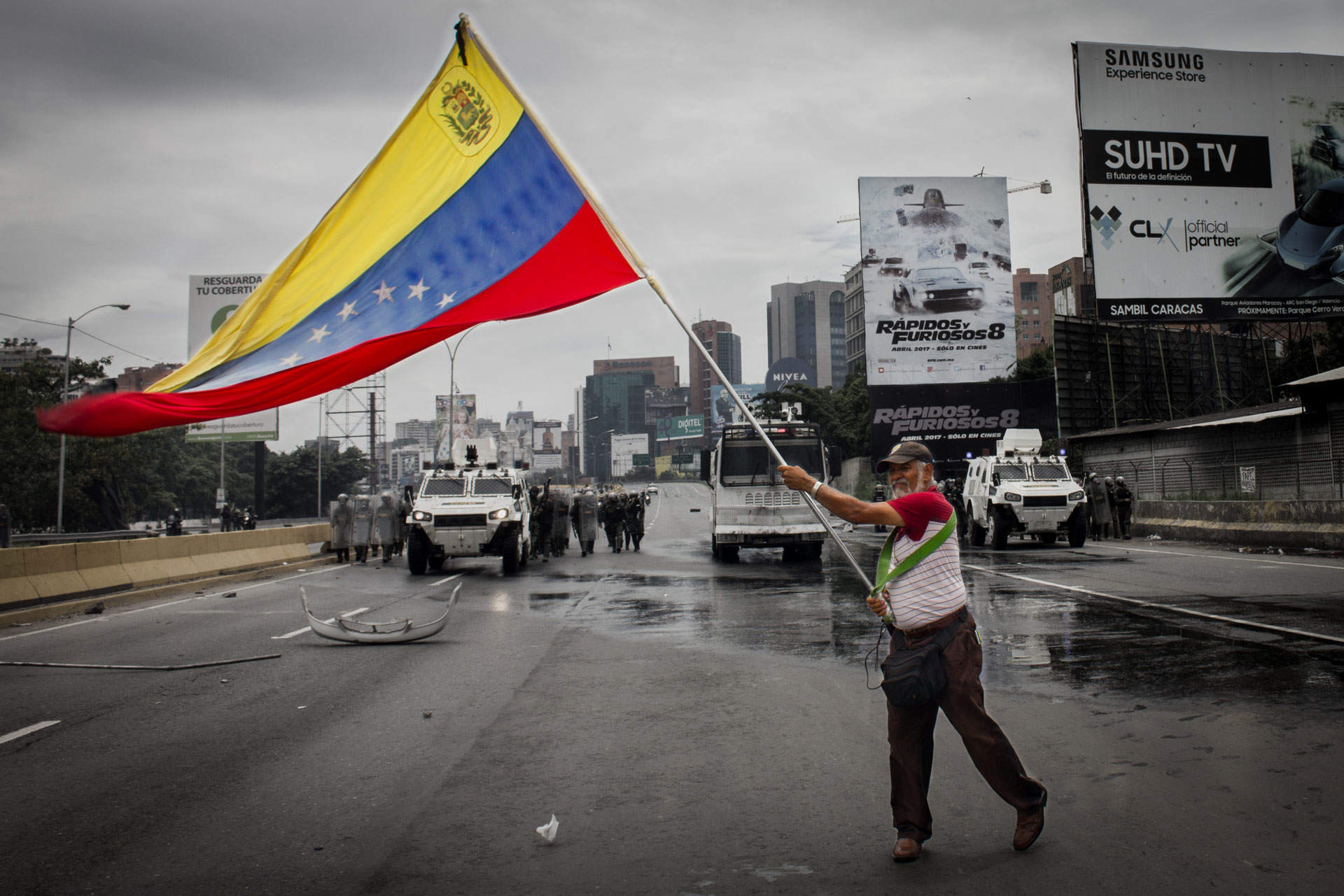
Venezuela has been struggling with economic disaster since the 1970s, and particularly since 2010 under President Chavez’s ‘Bolivarian Revolution’ economic policies. The crisis has continued into Nicolas Maduro’s reign and the current situation is considered the worst economic crisis in the country’s history and one of the worst in the Americas, with the established Venezuela currency in freefall.
In February, in an effort to contain hyperinflation and battle US sanctions preventing Venezuela from selling off its debt, Venezuela launched what Maduro called a cryptocurrency. The ‘petro’ was described as being valued against Venezuela’s oil reserves, which are the largest in the world.

Access deeper industry intelligence
Experience unmatched clarity with a single platform that combines unique data, AI, and human expertise.
Venezuela currency: Maduro launches the ‘sovereign bolivar’
Now President Maduro has announced plans to create a new fiat currency, called the ‘sovereign bolivar’. The sovereign bolivar will be redenominated, removing five zeros from its unit measurement and will be linked to the petro. One petro is valued at a barrel of oil and will be valued by the Venezuelan government at 3,600 sovereign bolivars or $60.
Teunis Brosens, economist for global markets at ING, imagines a black market will develop again in Venezuela: “We will have to see what the exchange will be and that will tell us something about the official exchange and I’m afraid there will probably be a big difference between the two.”
The introduction of the sovereign bolivar will increase the exchange rate of the bolivar from 250,000 per US dollar to around 6 million, devaluing the bolivar by 95%.
On Friday Maduro said: “They’ve dollarized our prices. I am petrolising salaries and petrolising prices.”

US Tariffs are shifting - will you react or anticipate?
Don’t let policy changes catch you off guard. Stay proactive with real-time data and expert analysis.
By GlobalDataHe also said: “We are going to convert the petro into the reference that pegs the entire economy’s movements.”
Cryptocurrency ‘petro’: the kryptonite of America
Maduro described the petro as a currency “that can take on Superman”. Claims followed that the digital tokens raised $735 million in its first day of release. But this did not stop the IMF projecting Venezuela’s 2018 inflation at 1,000,000% in July.
Teunis Brosens, economist for global markets at ING, says: “It’s really strange to call it a cryptocurrency as the Venezuelan government is doing. It’s not really a cryptocurrency.”
He explains: “A cryptocurrency proper is decentralised so it doesn’t sit well with a country and central bank issuing a cryptocurrency.”
Other countries like Sweden are thinking about issuing digital currencies alongside the physical notes and coins, but Teunis says these will not be cryptocurrencies, but “something different”.
Also it seems there is a lack of clarity over the mechanism of the petro, and Teunis says: “It’s not clear, but I assume the Venezuelan government can issue petro as they like, which makes it unlike cryptocurrency like bitcoin where issuance is controlled by the software code integrated into the blockchain, so supply is fixed. With petro we just don’t know because the Venezuelan government can issue it at will.”
Venezuela’s main problem is lack of credibility
But the critical problem with President Maduro’s scheme, Teunis says, is trust.
“People will only believe a sovereign bolivar is worth a certain amount of petro and in the end a certain amount of oil if they trust the Venezuelan government is indeed willing at a certain time in the future to exchange a sovereign bolivar for a certain amount of petro and in the end a certain amount of oil,” he explains. “And there you come again to the basic problem: there are doubts about the Venezuelan government’s ability to produce the amount of oil and there are doubts about its financial health.”
He adds: “There are technical constraints in place due to lack of investment and because of the US sanctions in place.”
Venezuela used to be one of the richest Latin American nations, with its wealth in oil reserves and a GDP higher than Spain, Greece and Israel. But its crisis sprung from a number of failed policies, including nationalisation of its oil production in 1976, and were compounded under President Chavez and President Maduro under corrupt, socialist themes that provoked US sanctions.
Maduro’s window-dressing “just won’t work”
Teunis describes all of these latest policies as “basically just to distract from the economic problems of Venezuela”.
He explains: “Because hyperinflation is caused by economic policies that are failing, by the fact that foreign investors and exporters have lost trust in the Venezuelan government, in the Venezuelan economy. In the end they have lost trust in the capacity and willingness of the Venezuelan government to make good on its financial promises. Venezuela has basically lost financial credibility in the world, that’s the core problem.”
The economic crisis in Venezuela has been devastating to its population, with 90% now living in poverty and a murder rate in 2015 of 90 people per 100,000. People have been fleeing the country as economic refugees with UN estimates at 2.3 million people leaving since 2014.
Economists are warning that the latest measures will drive inflation even higher than the 1,000,000% already forecast. The government, in default by $6bn, just prints more bank notes, while oil production, the bedrock of the economy, falls.
Teunis explains how this “face lift”, as Maduro’s latest plans are described, could actually make things worse for Venezuela. He says: “It shows that the government is not willing to really address the fundamental problems, but is giving fake solutions.
“This is an attempt at window dressing, at distracting from the actual problems by adding a cryptocurrency, a blockchain and hoping people will buy into these over-hyped words and the petro. But I’m afraid the majority of the outside world are smarter than that and the majority of Venezuelans are smarter than that and it just won’t work.”







